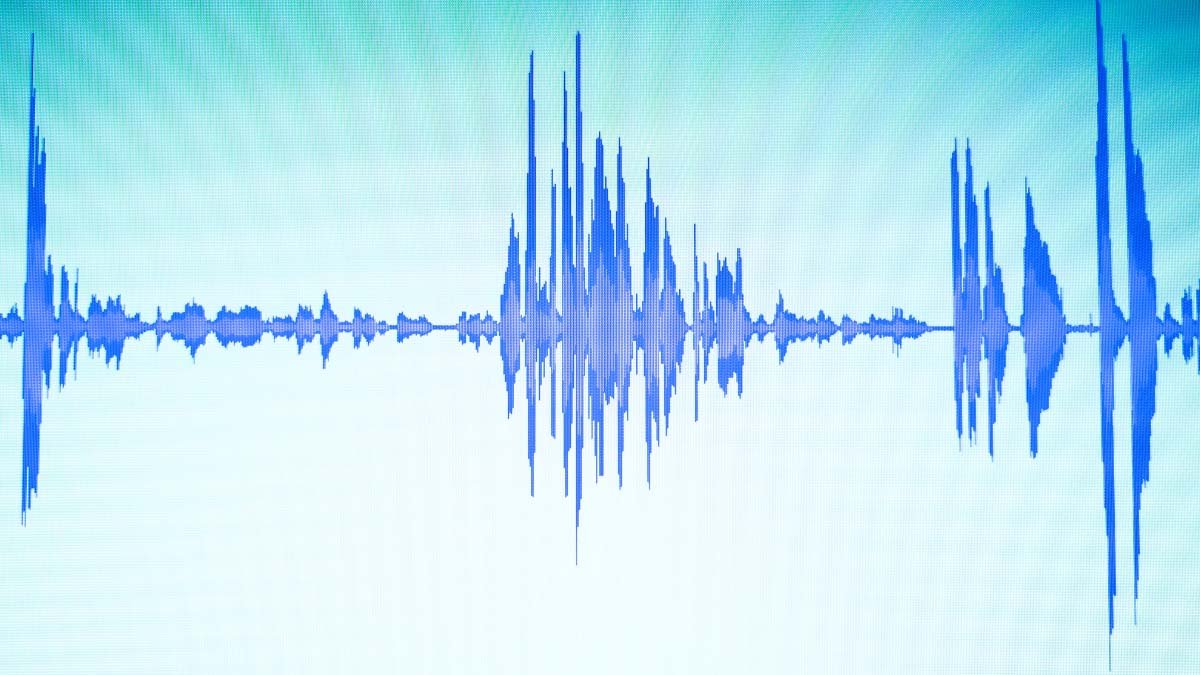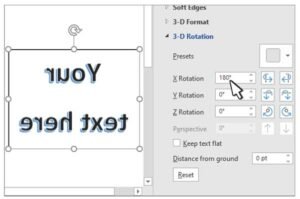Jekk id-din ta 'uffiċċju jew dar impenjattiva qed tnaqqas l-esperjenza tal-editjar tal-awdjo tiegħek, Imbagħad oqgħod attent!
L-istorbju fl-isfond jista 'jkun partikolarment ta' detriment għal esperjenza ta 'reġistrazzjoni ottimali. Jista 'jkun diffiċli li wieħed jagħraf liema ħoss qed tisma', Mela anke jekk huwa biss chatter fl-isfond jew ħsejjes oħra miż-żona tal-madwar – bħat-traffiku tat-toroq jew unitajiet tal-arja kondizzjonata fl-ajru – dawn jistgħu potenzjalment jirrendu l-awdjo tiegħek li ma jistax jintuża!
1. Issikka ċ-ċinturini tas-sigurtà tiegħek u aġġusta l-livelli tiegħek
Jekk qed tfittex li tneħħi l-istorbju fl-isfond fi binarju, Huwa imperattiv li tistabbilixxi l-volum korrett u tiffissa kwalunkwe varjazzjoni. Biex tagħmel dan, Uża l-maws – Sempliċement ikklikkja darba fiċ-ċentru tal-binarju tiegħek waqt li żżomm il-bidla sabiex tibqa 'wieqfa waqt li tiżżerżaq il-bar slider' il fuq jew 'l isfel. M'għandekx toqgħod dwar it-tħassir tal-binarji; Jekk tixtieq twettaq editjar aktar tard fuq ħliefhom qabel ma tkompli aktar!
Ladarba tkun stabbilixxiet il-livell ideali għaż-żewġ kanali, Kun żgur li tivverifika li m'hemm l-ebda ħoss barrani introdott billi inizjalizza l-livelli tiegħek (ara l-ponta #1 hawn fuq).
Bil-livelli tiegħek issettjati kif suppost, Dak kollu li jibqa 'huwa li tirranġa dawk il-pumi ta' l-irfinar! Jekk trid tisma 'kemm l-aġġustamenti tal-ħoss tiegħek influwenzaw ir-riżultat finali tal-korsa tiegħek imbagħad ikklikkja fuq l-'Scope'’ buttuna li tinsab fil-kantuniera ta ’isfel tax-xellug; wara li tinnaviga lejn ir-reġjun mixtieq tal-fajl awdjo tiegħek u osserva l-forma tal-mewġ korrispondenti tagħha.
2. Tlift fil-boskijiet irjiħat
Jekk int dilettant tan-natura, Għaliex ma tieħu vantaġġ minn dan l-issettjar magnífico? Dan jista 'jitwettaq sempliċement billi tuża l-għodda' MOVE’ Biex tirriloka r-reġistrazzjoni tiegħek mill-pożizzjoni inizjali tagħha f'żona b'aktar waqfien u inqas ostruzzjonijiet.
Biex toħloq atmosfera tal-boskijiet irjiħat, Ibda billi tpoġġi l-mikrofonu tiegħek quddiemek daqs li kieku kont wieqaf taħt il-kanupew fil-bidunett. Sussegwentement agħżel is-selettur tal-għodda’ Jinsabu lejn il-qiegħ tal-toolbar tiegħek; Inkella uża kwalunkwe għażla oħra rilevanti jekk preferuta.
Uża l-għodda Move biex tbiddel ir-reġistrazzjoni tiegħek f'post ottimali biex taqbad in-narrattiva tar-riħ. Tista 'tagħżel bejn skopijiet varji bħall-ħolqien ta' xena bieżla (bħal taħt awtostrada), jew sempliċement ittawwalha għal esperjenza undulating – kollha kemm jista 'jkun!
3. Play fil-kamra tal-puddle
Biex tikkomponi pajsaġġ tal-ħoss perfett, trid tikkunsidra l-atmosfera wkoll. Dan jista 'jinkiseb permezz ta' tekniki awdjo spazjalizzati bħal reġistrazzjoni binaural u IEMs – li huwa metodu eċċellenti biex tisma 'mużika meta tkun f'postijiet iffullati bħal ajruporti jew fuq trasport pubbliku.
Pereżempju, L-użu ta 'IEMs bl-effett reverberant jista' joħloq esperjenza eqreb lejn li tkun f'kamra spazjuża vojta mill-vjaġġar tipiku tiegħek! Fuq in-naħa flip għalkemm – Jistgħu wkoll jagħtu xi riżultati mhux mistennija jekk qed nitkellmu dwar diversi settings tal-kċina fejn riflessjoni tal-ħoss tista 'tagħti lilha nnifisha pjuttost sewwa biex tfassal kompożizzjoni whimsical!
4. Ikollok trek mingħajr isem
Wara t-trekking ta 'ġurnata twila, Jista 'jkun meħtieġ li ttaffi r-ruminations tiegħek b'nap rilassanti. Iżda qabel ma titlaq għal slumber, Għaliex ma tniedix expedition taħt l-iktar crags maestużi tad-dinja?
Ma jimpurtax x'inhi l-avventura magħżula tiegħek, Iċ-ċansijiet huma li n-natura tista 'tipprovdi kalma ta' restawr tant meħtieġa. Hemm xi ħaġa dwar li tkun mgħaddas fin-natura li tirrilaxxa l-moħħ mill-kura ta 'kuljum tagħha - jekk biss għal mument!
5. Oħroġ mid-dell
Qatt ħsibt għaliex xi binarji jidhru hekk illustrati, Filwaqt li oħrajn jidhru daqsxejn ħarxa madwar it-truf? Jista 'jkun minħabba li l-proċess tat-taħlit kien aktar assiduż ma' l-istanza ta 'qabel; Dan kollu jeħel għat-tip ta 'tagħmir użat għal kull binarju.
Jekk it-taħlita tiegħek hija magħmula minn strumenti multipli, bħal kitarri u vokali, Imbagħad il-picking l-iktar tagħmir xieraq isir l-akbar importanza. Ma tħossokx obbligat li tuża amplifikaturi fl-istil vintage – Jekk mhumiex xierqa għall-istil ta 'mużika jew klassifikazzjoni tal-ġeneru tiegħek, Imbagħad waħħal ma 'dak li jaħdem l-aħjar minflok!
L-aħħar linja hija li l-ħardwer jista 'jkollu impatt fuq il-kwalità tal-ħoss, li fl-aħħar jista 'jirriżulta f'taħlitiet li jdoqq aħjar.
6. Kun eċċitat għall-vacuum cleaner
Imxi mill-mikrofonu, U nsibu ruħna f'ambjent għal kollox differenti – l-ispazju ta 'xogħol tiegħek. Jekk qed tfittex xogħol jew sempliċement trid tgħaqqad episodju ta 'podcast id-dar; Ikkunsidra li tinvesti f'vakwu cleaner!
Dan l-apparat qawwi huwa li tiffranka l-ħin veru meta tiġi biex tinqered ħoss mhux mixtieq bħal ħsejjes statiċi jew popping. Sempliċement issettjaha fuq l-awtopilota u ħalliha tagħmel il-ħaġa tagħha waqt li tasal għan-negozju!
7. Sib post fejn tinżel jew tifflowt
Jekk issibha diffiċli biex tikkonċentra fuq ix-xogħol tiegħek meta jkun hemm ħsejjes li jaljenaw fl-ambjent, Imbagħad ikkunsidra li tixtri kamra iżolata għall-produttività.
Jekk l-iżolament ma jkunx fattibbli, Ir-riċerka turi li f'wiċċ l-ilma jew li jegħreq f'banju jista 'jippermetti konċentrazzjoni paċifika wara perjodi fit-tul ta' smigħ ta 'inħawi storbjużi.
Konklużjoni
Biex telimina l-istorbju fl-isfond mir-reġistrazzjonijiet tiegħek, Ibda billi tiżgura li huma ħielsa mill-ilħna u l-ħsejjes l-oħra kollha. Imbagħad, Uża l-għodda ta 'ekwalizzazzjoni biex tagħti spinta lill-frekwenzi ewlenin filwaqt li tnaqqas fl-istess ħin ħsejjes ta' livell baxx; Dan jirriżulta f'xenarju tal-ħoss aktar spazjuż.



